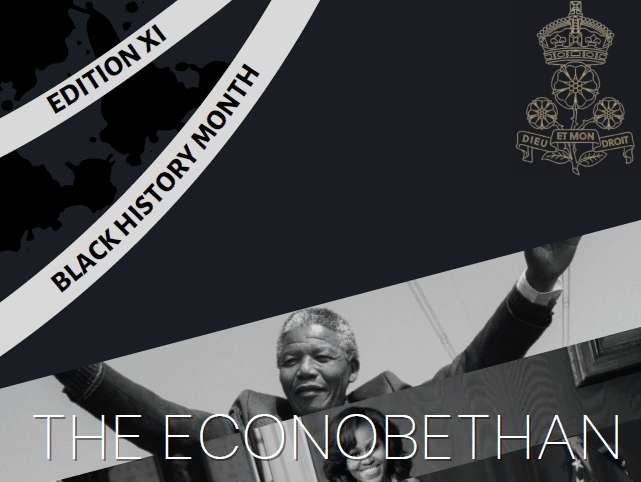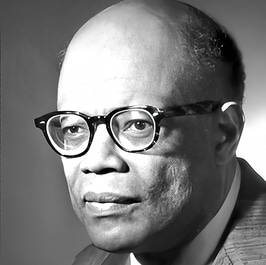Inspiring, informative and timely: new issue of magazine features “high-quality” writing from QE’s Sixth Form economists

The 11th edition of The Econobethan – QE’s pupil-led magazine focusing on Economics, as well as on Politics and Sociology – spans the centuries and roams the continents.
It includes original writing from Year 12 pupils on topics ranging from the ancient world – the economic history of the Roman Empire – to the very contemporary concern of the climate crisis, and from the underlying causes of Africa’s poverty to Japan’s ‘apology culture’.
The 27-page magazine also has as its special theme, ‘Black history’, with four articles in a dedicated section. The Econobethan was published just ahead of this month’s launch of a statement expressing QE’s vision for a broad, diverse and inclusive curriculum.
Headmaster Neil Enright said: “The Econobethan is always a stimulating read, and this issue is no exception, with high-quality, considered submissions from the contributors that should serve to inspire deeper thinking and research from other pupils.
 “The theme of Black history is timely: through the launch of our long-term vision for a broad, diverse and inclusive curriculum, we seek to build on the very thoughtful work that has already been done at the School, ensuring that our pupils are well-equipped to thrive in our diverse, modern world.”
“The theme of Black history is timely: through the launch of our long-term vision for a broad, diverse and inclusive curriculum, we seek to build on the very thoughtful work that has already been done at the School, ensuring that our pupils are well-equipped to thrive in our diverse, modern world.”
The Econobethan is edited by Aditya Kute, Avinash Srivastava and Nishanth Bhasuru. In their introductory editors’ note, they write that the magazine aims to “shed light on economic points of interest, as well as providing a platform for some of the School’s most talented writers to delve into current economic affairs”.
In the Black history section, Aditya looks at why Black History Month is important. He spotlights Sir Arthur Lewis, still the only Black winner of the Nobel Prize for Economics (which he won in 1979), and Claudette Colvin, a pioneer of the American civil rights movement, who, at the age of 15, was arrested in 1950s Alabama for refusing to give up her seat on a crowded bus to a white woman.
 Aston Daniel looks in more detail at the work of Sir Arthur, while a piece from Avinash is entitled How Does Systemic Racism Continue to Impact Economic Outcomes for African Americans? and Keith Correia writes on How was the war on drugs in the US used as a segregation tool?
Aston Daniel looks in more detail at the work of Sir Arthur, while a piece from Avinash is entitled How Does Systemic Racism Continue to Impact Economic Outcomes for African Americans? and Keith Correia writes on How was the war on drugs in the US used as a segregation tool?
Elsewhere in The Econobethan, Nishanth explores Underworld Economics and concludes that while informal markets do cause ‘numerous issues’, nevertheless ‘contrary to the common belief, they aren’t completely negative’, since, for example, they ‘provide a pathway for low-earning families…to get by and survive’.
In the Languages section, Aayush Backory discusses Le fer et les finances: partie 1: l’économie du Luxembourg du 19ème siècle (Iron and finance Part 1: The economy of 19th century Luxembourg) and Arjun Patel writes in German on How do we Deal With the Climate Crisis? (Wie Bewältigen wir die Klimakrise?)
